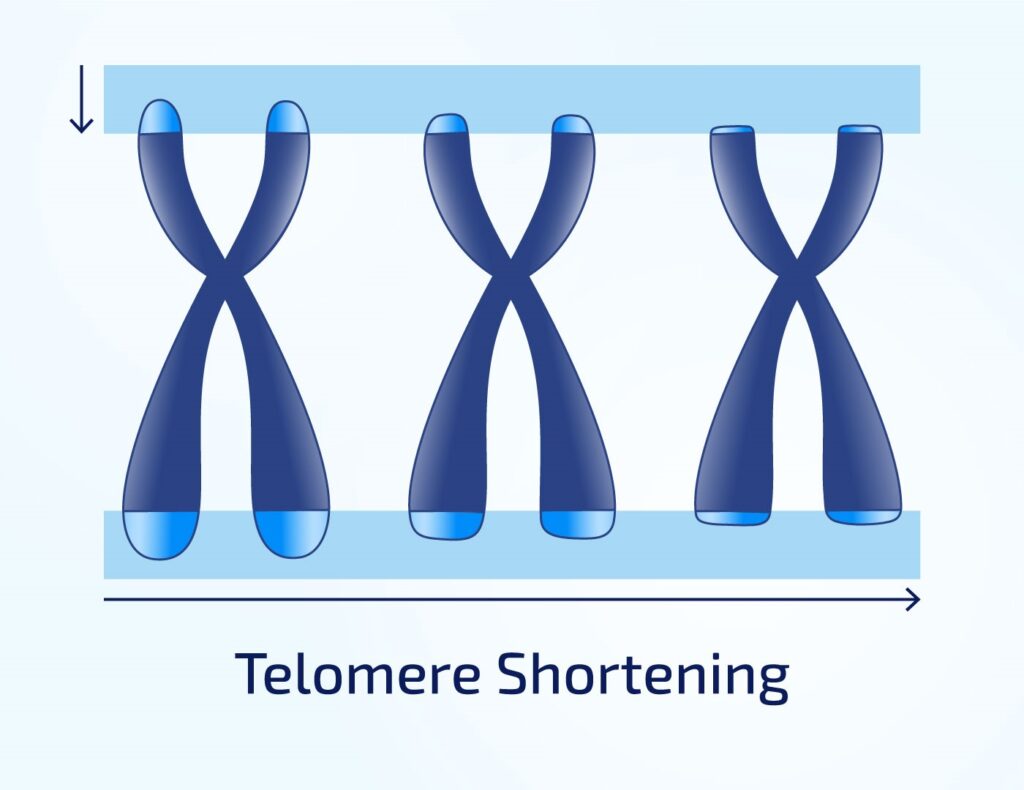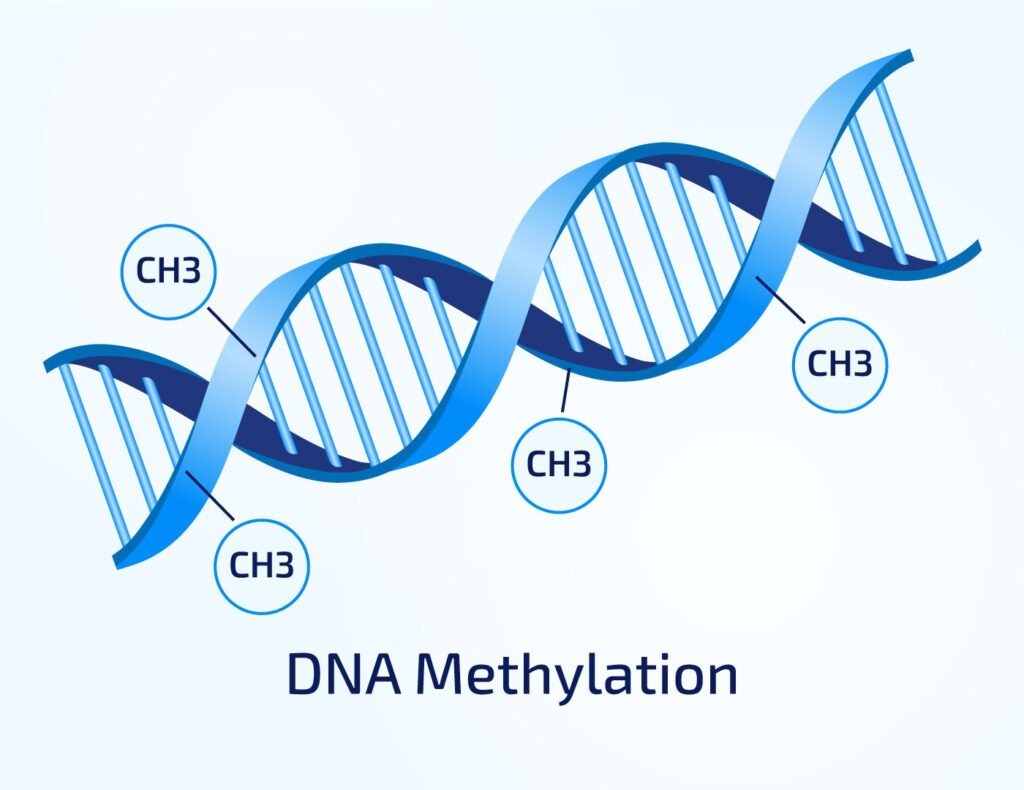Chronological Aging vs Biological Aging: Its Impact on Longevity
Age is just a number!
Turns out that the age-old motivational saying was actually backed by science all along.
Your age, or what we should really call it – chronological age, is just an annual reminder of the trips you make around the sun. We call them birthdays.
But we all know that these trips do come to a halt and our existence eventually ceases.
Blame your biological age. Or what we should really call it – our cellular age.
Unlike chronological age, biological age is a measure of an individual’s overall health and vitality based on various factors such as the genetic changes in your cells, the functioning of your organs, and your overall well-being. (1)
To put it in real simple terms, chronological age measures how long you have lived, whereas biological age predicts how much more or less of it you have still got!
Chronological Vs Biological Aging: What’s The Difference?
Although the film ‘The Age of Adaline’ was a complete flight of fancy, it explains the concept of chronological vs biological age well. Adaline, a young woman in her late 20s, mysteriously halts her aging process after encountering a near-fatal car crash. She goes on to live a whole century in the body of a 29-year-old! So, the clock kept ticking making her roughly 107 years old, but her cells never aged even a day.
If science could really add up to that level someday, probably even we wouldn’t. Research states there are two possible explanations for this phenomenon:
Telomere shortening

Most of us are aware of what DNA is - tiny strands of enormous genetic data present inside every cell of our body. It pretty much does everything that goes on in our body by undergoing continuous division. But each time your DNA (and cell) divides, tiny structures present at the ends of the strand called telomeres shorten. Once these telomeres become too short, your cell or the DNA loses the capacity to divide. And when your cells stop dividing, you start to age. (2)
DNA Methylation

DNA Methylation can be regarded as chemical changes that the DNA undergoes that help it to fine-tune various cellular functions in the body. Methyl is a chemical structure that attaches to different regions of the DNA and can switch them on or off, a process scientifically termed gene expression or inhibition. So, when certain DNA regions are turned off or on, you may either become prone to faster aging or age very slowly! (2)
This is the reason why every individual age at a different rate. This is the reason why your septuagenarian aunt still looks 50. And this is the reason why you already have the lung capacity of a 60-year-old! It’s all science.
The good news is that you can turn that around.
6 Ways to Slow Down the Biological Clock
Aging is a natural process, and as much as we would like to hold on to the looks and energy of a 20-year-old, we can’t stop our biological clock. But we have some control over its pace and can try to slow it down.
- Maintain A Healthy Diet (3)
We are what we eat. Eating your greens, fruits, whole grains, healthy fats, and most importantly, lean protein will prove helpful in achieving your ideal biological age. Studies suggest that regular intake of such food items is directly linked with longer telomere lengths, a change that will help your cells retain their ability to divide and age at a slower rate.
However, consuming a healthy diet might not always give us the best results as each individual is wired differently at the genetic level.
Thankfully, this shortcoming in your diet can be easily overcome by incorporating supplements like collagen, creatinine, and Nicotinamide Mononucleotide that boost your cellular health.
- Exercise Regularly (4)
Move, move, and move some more! Engaging in regular exercise and strength training can help you maintain muscle mass, bone density, and high fitness levels. We are looking at a minimum 150 minutes of moderate-intensity exercise or 75 minutes of vigorous-intensity exercise per week.
- Get Proper Sleep (5)
Sometimes doing nothing will help you age slowly too. Get a cozy blanket, switch off your phones at least an hour before bedtime, switch off the lights and snooze away! Don’t get back up anytime for some 7-9 hours. It works.
- Manage Your Stress (5)
Stress causes fine lines, wrinkles, gray hair, and whatnot. So, you need to find ways to stay away from it as much as possible. On a really bad day, find solace in stress-reducing techniques such as meditation, deep breathing, yoga, or just sleep again.
- Avoid Harmful Habits (6)
A big no to smoking and consuming alcohol (try to at least limit its amount)! Don’t believe us? Believe this study that highlights how smoking and drinking can accelerate your biological clock.
Keeping your mind busy with meaningful stuff will help it become more productive and stress-free. Do things that you love, things that fulfill your purpose. Try to spend as much time as possible with people who love you or make you happy. Science says that finding your zen might be the key to living a long and healthy life!
Safe to say your 30s, 40s, and 50s can really be your new 20s, 30s, and 40s. You just have to start putting in some effort now.
Hurry, the clock’s ticking!
References
- https://pubmed.ncbi.nlm.nih.gov/12849085/
- https://www.ncbi.nlm.nih.gov/pmc/articles/PMC8477681/
- https://pubmed.ncbi.nlm.nih.gov/31631676/
- https://pubmed.ncbi.nlm.nih.gov/35718862/
- https://pubmed.ncbi.nlm.nih.gov/37086720/
- https://pubmed.ncbi.nlm.nih.gov/26566992/
- https://www.ncbi.nlm.nih.gov/pmc/articles/PMC3132762/
- https://www.ncbi.nlm.nih.gov/pmc/articles/PMC9550255/




